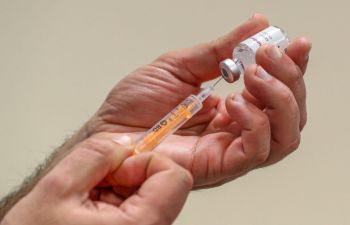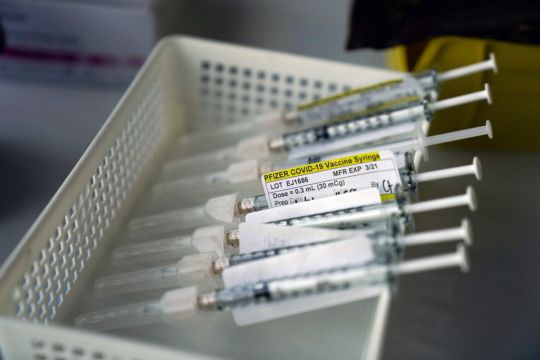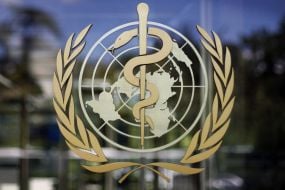Taoiseach Micheál Martin has confirmed people aged over 70 will be offered the Pfizer and Moderna vaccines, rather than the recently approved AstraZeneca jab.
It comes after a recommendation from the National Immunisation Advisory Committee (NIAC) that it would be preferential to give mRNA vaccines, like Pfizer and Moderna, to older age groups. This is because there was a limited number of people aged over 55 in the AstraZeneca phase three clinical trial.
The chief medical officer Tony Holohan said people over 65 working in long term residential care facilities should receive an mRNA vaccine instead of the AstraZeneca vaccine because of their increased risk of mortality.
Mr Holohan and Minister for Health Stephen Donnelly have also backed plans to give the Pfizer and Moderna vaccines to those over 70 where practicable.
This presents logistical challenges as AstraZeneca is the only one of the three jabs that can be stored at fridge temperature.
“That will mean change in terms of the operation of the plan and will be a significant logistical challenge to the Health Service Executive, and they're currently working through the implications of this,” Mr Martin said.
Family doctors are now working with the health service to roll out the Pfizer and Moderna vaccines to older people.
The Taoiseach insisted all three vaccines are still deemed to be safe for all age groups.
“All three vaccines are safe and effective but given the higher efficacy data around the mRNA vaccines, namely Pfizer-BioNTech and Moderna, the CMO is recommending that it would be preferable to use them where practical and timely for the over 70s,” he said.
“Given that the over-70s are the most vulnerable to death and to illness if they get Covid the recommendation is that we apply those vaccines – Moderna and Pfizer – to the over 70s and that is what's going to happen.”
The Taoiseach promised the vaccination of those over 70 will still begin on February 15th.
He suggested the vaccination of other groups may now be brought forward as a result of the recommendation.
“It means for other groupings and the cohorts four, five, six and seven that they'll be able to come forward in terms of AstraZeneca,” he told TodayFM's The Last Word programme.
Many national health authorities in EU countries are also curtailing the use of the AstraZeneca vaccine among older people.
GP rollout
In an update to its GP membership seen by The Irish Times, the Irish Medical Organisation (IMO) said that it is “working with the HSE for the rollout of the Pfizer and Moderna vaccines through general practice for patients aged over 70”.
“This programme and roll out is not without its challenges from a logistical perspective but in circumstances where General Practice has proven itself to be efficient and effective at mass population vaccines we are confident that it can be delivered as the starting point of this national effort,” Dr Denis McCauley, the IMO GP chair, wrote in a note to members.

Earlier on Wednesday the chief clinical officer of the HSE, Dr Colm Henry, confirmed that the preference would be to give older people mRNA vaccines rather than the newly-approved AstraZeneca shot.
“The advice generally is to give the mRNA vaccines, namely the Moderna or the Pfizer, to preferentially give those to older people. Based on the evidence we have right now it affords them greater protection,” Dr Henry said.
It is thought that pooled vaccination centres, where GPs come together in a central location to give shots to their patients, are under consideration. These would differ from the mass vaccination centres as originally conceived in the State’s vaccine rollout plan.







